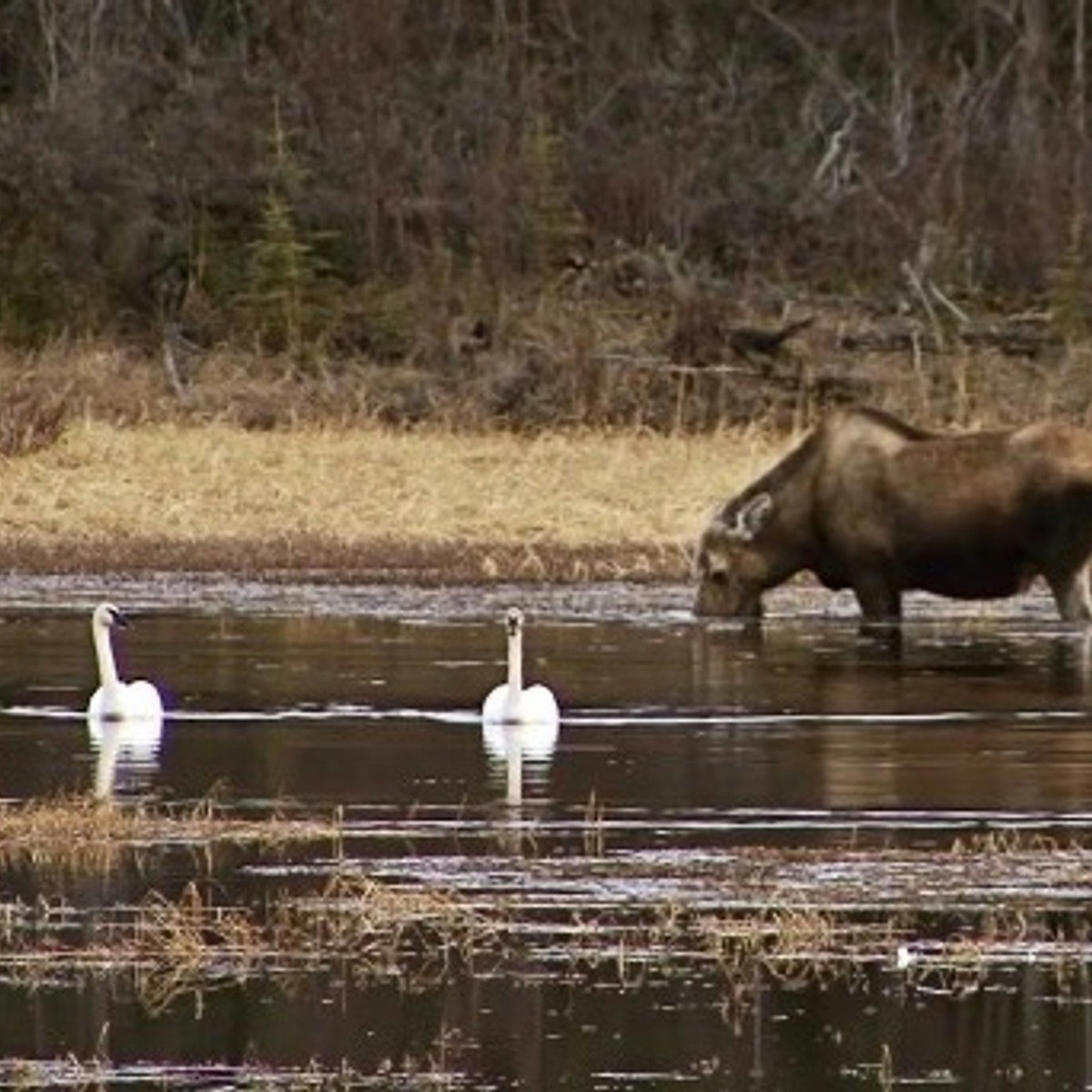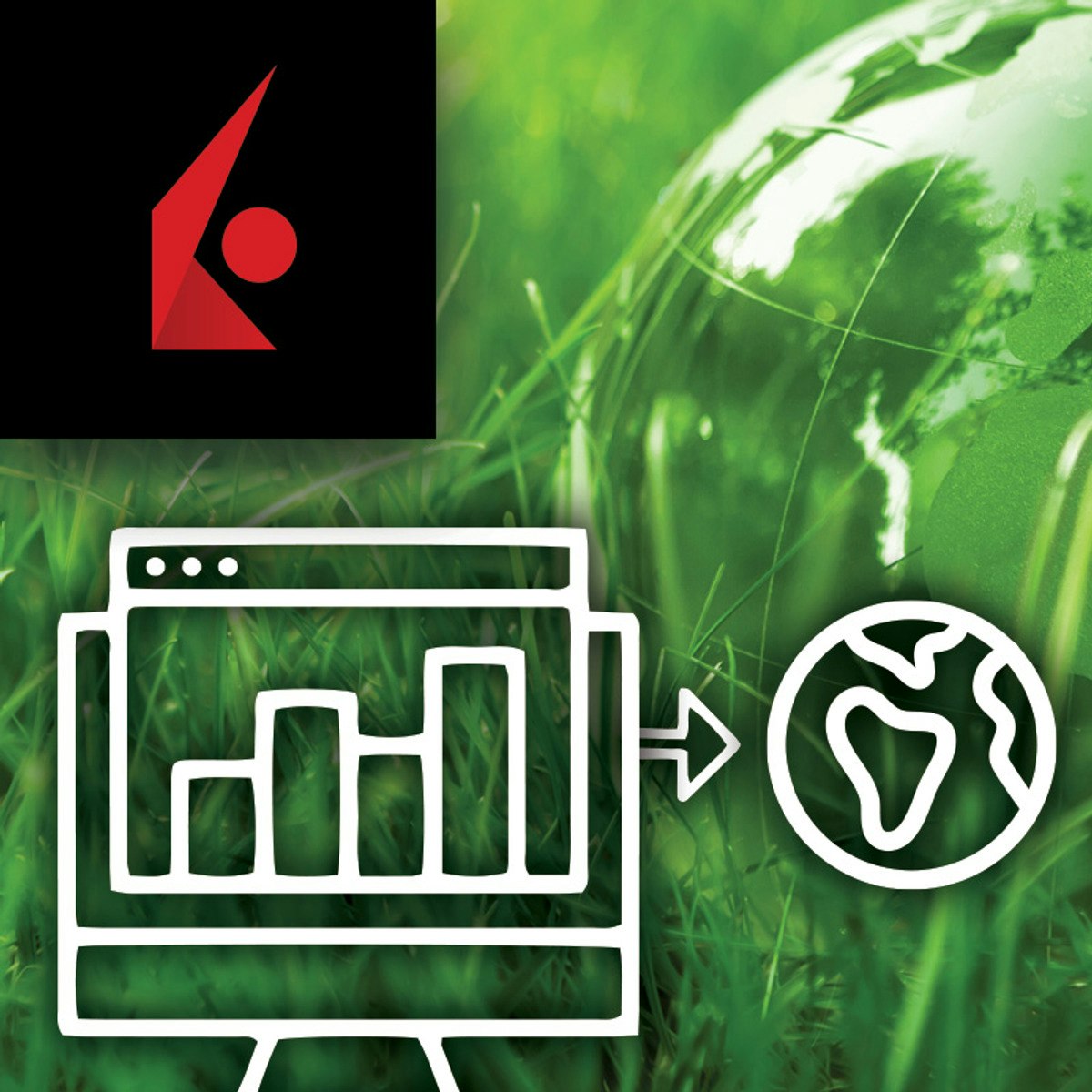Environmental Consultant
Environmental Consultant: Shaping a Sustainable Future
Environmental consultants are problem-solvers who apply scientific knowledge and technical expertise to address environmental challenges. They advise businesses, government agencies, and other organizations on how to comply with environmental regulations, manage environmental risks, and implement sustainable practices. Think of them as guides helping navigate the complex relationship between human activities and the natural world.
Working in this field can be highly engaging. You might find yourself investigating contaminated land one week and developing a corporate sustainability strategy the next. It often involves a mix of fieldwork, data analysis, report writing, and client interaction, offering variety and intellectual stimulation. For those passionate about protecting the planet and influencing positive change, a career as an environmental consultant offers a direct way to make an impact.
Introduction to Environmental Consulting
What is Environmental Consulting?
At its core, environmental consulting involves providing expert assessment and advisory services regarding environmental matters. Consultants help clients understand and manage their environmental impact, ensuring they meet legal requirements and often go beyond compliance toward greater sustainability. This might involve anything from assessing the potential environmental effects of a new construction project to helping a factory reduce its emissions or waste.
The field bridges the gap between scientific understanding, regulatory frameworks, and practical business operations. Consultants translate complex environmental science and policy into actionable advice for their clients. They play a crucial role in balancing development needs with environmental protection, making it a vital profession in today's world.
This career path often attracts individuals with a strong scientific background and a desire to apply their knowledge to real-world problems. It requires analytical thinking, problem-solving skills, and effective communication to explain technical issues to non-technical audiences.
For those exploring different paths within science and engineering, environmental consulting offers a dynamic and impactful career option. It provides opportunities to work on diverse projects across various industries, contributing to a healthier planet.
Evolution of the Field
Environmental consulting emerged as a distinct profession largely in response to growing public awareness and government regulation concerning environmental issues, particularly from the mid-20th century onwards. Landmark environmental legislation in many countries created a need for specialists who could interpret complex rules and guide organizations toward compliance.
Initially, the focus was heavily on pollution control and remediation of contaminated sites. Consultants were often called in after environmental damage had occurred. Early work involved identifying sources of pollution, assessing the extent of contamination, and developing cleanup plans.
Over time, the field has evolved significantly. There's been a shift towards proactive environmental management, risk assessment, and sustainability. Consultants now help organizations anticipate environmental issues, integrate environmental considerations into their planning, and develop strategies for long-term environmental performance and resource efficiency.
The rise of concerns like climate change, biodiversity loss, and resource scarcity has further broadened the scope. Modern environmental consulting increasingly involves areas like climate risk assessment, adaptation planning, carbon accounting, and circular economy strategies, reflecting a more holistic approach to environmental stewardship.
Industries and Sectors Served
Environmental consultants work across a wide spectrum of industries and sectors, reflecting the broad impact of human activity on the environment. The construction industry, for example, frequently requires consultants for site assessments, environmental impact studies, and managing construction-related environmental risks like erosion control or waste disposal.
The energy sector, including both traditional fossil fuels and renewable energy projects, relies heavily on environmental consultants. This involves assessing the environmental impacts of energy extraction, generation, and transmission, navigating permitting processes, and planning for site decommissioning and restoration.
Manufacturing companies often engage consultants to help manage air emissions, wastewater discharges, hazardous waste, and chemical handling in compliance with regulations. Consultants also assist manufacturers in improving resource efficiency and adopting cleaner production methods.
Government agencies at local, regional, and national levels are also major clients. Consultants may assist governments in developing environmental policies, monitoring environmental conditions, managing public lands, overseeing remediation projects, and ensuring regulatory compliance within government operations.
Other sectors commonly served include mining, transportation, real estate development, agriculture, waste management, and even finance, where consultants might assess environmental risks associated with investments.
Global Scope and Regional Variations
Environmental consulting is a global profession, driven by international agreements, multinational corporations, and a shared awareness of transboundary environmental issues like climate change and pollution. However, the specific focus and demands can vary significantly by region.
Developed nations often have mature and complex regulatory frameworks, leading to high demand for compliance-focused consulting, contaminated site remediation, and increasingly, sustainability and ESG (Environmental, Social, Governance) services. Public awareness and stakeholder pressure also tend to be high in these regions.
In rapidly developing economies, consulting may focus more on environmental impact assessments for new infrastructure projects, basic pollution control for industrializing sectors, and capacity building for environmental management. Regulations might be evolving, creating both challenges and opportunities for consultants.
Specific regional environmental priorities also shape the market. Coastal regions might focus on marine pollution and coastal zone management, while arid regions prioritize water resource management. Areas rich in natural resources might see more consulting related to mining or forestry impacts. Local regulations, cultural contexts, and economic conditions all influence the practice of environmental consulting around the world.
Roles and Responsibilities of an Environmental Consultant
Day-to-Day Duties
The daily tasks of an environmental consultant are diverse and depend on their specialization, seniority, and current projects. A significant portion of the job often involves conducting environmental site assessments (ESAs). This includes historical research, site inspections, and potentially collecting soil, water, or air samples to check for contamination.
Regulatory compliance is another core duty. Consultants help clients understand and adhere to complex environmental laws and regulations. This might involve preparing permit applications, developing environmental management plans, conducting audits to check compliance status, and advising on necessary actions to meet legal obligations.
Data analysis and reporting are fundamental. Consultants analyze field data, laboratory results, and regulatory information to draw conclusions and make recommendations. They then compile their findings into detailed technical reports, which are crucial deliverables for clients and regulators.
Beyond technical tasks, communication is key. Consultants interact frequently with clients to understand their needs, present findings, and provide advice. They also liaise with regulatory agencies, laboratories, contractors, and sometimes the public.
These courses provide insights into managing environmental aspects and understanding potential impacts.
Areas of Specialization
Environmental consulting is a broad field, and many professionals choose to specialize. One common area is contaminated site management, which involves investigating and remediating soil and groundwater contamination from past industrial activities, spills, or improper waste disposal.
Waste management consulting focuses on helping organizations handle their waste streams effectively and sustainably. This includes waste characterization, developing recycling programs, advising on hazardous waste disposal, and designing waste management facilities like landfills or transfer stations.
Another growing specialization is climate change and sustainability services. Consultants in this area help clients assess climate-related risks, measure and reduce their carbon footprint, develop adaptation strategies, and report on their environmental, social, and governance (ESG) performance.
Other specializations include air quality management, water resources management (including hydrology and water treatment), ecology and biodiversity assessments, environmental impact assessment (EIA), noise and vibration control, and occupational health and safety (often termed HSE - Health, Safety, and Environment).
These courses offer deeper dives into specific areas like water management, carbon neutrality, and safety.
Collaboration and Stakeholders
Environmental consultants rarely work in isolation. Collaboration is essential, both within their consulting team and with a wide range of external stakeholders. Internally, projects often require input from specialists with different expertise – perhaps a geologist, a chemist, and a regulatory expert working together on a site assessment.
The primary stakeholder is usually the client – the organization hiring the consultant. Building a strong working relationship based on trust and clear communication is vital. Consultants must understand the client's objectives, operational constraints, and risk tolerance while providing objective, scientifically sound advice.
Consultants frequently interact with government regulatory agencies. This can involve submitting permit applications, discussing compliance issues, negotiating cleanup standards, or presenting findings from environmental assessments. Maintaining professional and credible relationships with regulators is crucial.
Depending on the project, other stakeholders might include local communities affected by a project, landowners, non-governmental organizations (NGOs), legal counsel, specialized contractors (like drilling companies or remediation firms), and analytical laboratories. Effectively managing these diverse relationships is a key part of the job.
This course explores stakeholder collaboration in environmental contexts.
Consultant Deliverables
The tangible outputs of an environmental consultant's work are known as deliverables. These are the documents and products provided to the client or submitted to regulatory agencies. High-quality, clear, and accurate deliverables are essential for a consultant's reputation and success.
Technical reports are the most common deliverable. These can range from Phase I Environmental Site Assessment reports, detailing historical property use and potential contamination risks, to complex hydrogeological investigation reports or detailed environmental impact statements.
Audits and assessments are another key deliverable type. Environmental compliance audits evaluate an organization's adherence to regulations, while sustainability reports assess and communicate performance on environmental, social, and governance metrics.
Consultants also develop various plans. These might include spill prevention plans, waste management plans, stormwater pollution prevention plans (SWPPPs), site remediation action plans, or environmental management systems (EMS) documentation according to standards like ISO 14001.
Other deliverables can include permit applications, monitoring data summaries, training materials, presentations to clients or stakeholders, and expert witness testimony for legal proceedings. The specific deliverables depend entirely on the scope and nature of the consulting engagement.
These books provide context on environmental assessment and engineering principles often reflected in consultant reports.
Essential Skills for Environmental Consultants
Technical Expertise
A strong foundation in scientific and technical skills is crucial for environmental consultants. Proficiency in Geographic Information Systems (GIS) software is often essential for mapping site features, analyzing spatial data, and presenting environmental information visually. Tools like ArcGIS or QGIS are commonly used.
Depending on the specialization, skills in environmental modeling may be required. This could involve groundwater flow modeling, air dispersion modeling, or ecological modeling to predict contaminant transport, pollutant concentrations, or ecosystem responses.
Data analysis skills are fundamental across the board. Consultants must be able to interpret laboratory results, statistical data, and monitoring information. Familiarity with spreadsheets (like Excel) and potentially statistical software or programming languages like R or Python for data analysis is increasingly valuable.
Field sampling techniques are also important, especially for junior roles. This includes knowing how to properly collect soil, water, air, or biological samples according to established protocols to ensure data quality and representativeness.
Regulatory Acumen
A deep understanding of environmental laws, regulations, and policies is non-negotiable for environmental consultants. They must stay current with evolving legislation at the local, regional, national, and sometimes international levels, as these rules dictate much of their work.
Knowledge of major environmental statutes – such as the Clean Water Act, Clean Air Act, RCRA (Resource Conservation and Recovery Act), and CERCLA (Superfund) in the United States, or equivalent legislation elsewhere – is foundational. Consultants need to know the requirements, permitting processes, and compliance standards associated with these laws.
Beyond the core laws, consultants often need expertise in specific regulatory programs relevant to their specialization. This could involve understanding standards for hazardous waste characterization, air emission limits for specific industries, wetland delineation protocols, or endangered species protection requirements.
Interpreting regulations accurately and applying them to specific client situations is a critical skill. Consultants must be able to explain complex regulatory requirements clearly and advise clients on the most effective and compliant course of action.
These resources provide background on environmental law and regulatory frameworks.
Soft Skills
While technical knowledge is essential, soft skills are equally important for a successful career in environmental consulting. Strong project management abilities are critical for handling multiple projects, managing budgets and timelines, and coordinating team members and subcontractors.
Excellent communication skills, both written and verbal, are paramount. Consultants must write clear, concise, and accurate technical reports. They also need to effectively present complex information to clients, regulators, and potentially the public, tailoring their communication style to different audiences.
Client relationship management is key. Consultants need to build trust, understand client needs, manage expectations, and navigate potentially difficult conversations, such as delivering unfavorable findings or discussing compliance costs.
Problem-solving and critical thinking skills are constantly applied. Consultants face unique challenges on each project and must analyze situations, identify potential solutions, evaluate their feasibility, and recommend the best course of action based on data, regulations, and client objectives.
Adaptability and resilience are also valuable traits. The work can involve tight deadlines, unexpected field conditions, changing regulations, and complex stakeholder dynamics. Being able to adapt to changing circumstances and handle pressure is important.
Fieldwork vs. Desk-based Competencies
Environmental consulting typically involves a mix of fieldwork and office-based work, although the balance varies significantly depending on role, specialization, and seniority. Junior consultants often spend a larger proportion of their time in the field, while senior consultants may focus more on project management, client relations, and report review.
Fieldwork competencies include the ability to conduct site inspections, operate field monitoring equipment (like photoionization detectors or water quality meters), collect samples correctly, document field observations meticulously, and navigate potentially challenging terrain or weather conditions. Adherence to health and safety protocols during fieldwork is critical.
Desk-based competencies revolve around data analysis, interpretation, and reporting. This involves proficiency with relevant software (GIS, modeling tools, spreadsheets), understanding regulatory frameworks, strong technical writing skills, attention to detail in reviewing data and reports, and effective project management.
Some specializations are inherently more field-intensive (e.g., ecological surveys, drilling supervision), while others are more office-based (e.g., regulatory permitting, sustainability reporting, air dispersion modeling). However, most roles require a blend of both skill sets. Successful consultants can effectively bridge the gap between field observations and office analysis.
This course provides foundational knowledge for fieldwork preparation.
Formal Education Pathways
Foundational Degrees
A bachelor's degree in a relevant scientific or engineering field is typically the minimum educational requirement for entry-level environmental consultant positions. Common undergraduate majors include Environmental Science, Environmental Engineering, Geology, Hydrogeology, Chemistry, Biology, Ecology, or Civil Engineering with an environmental focus.
These programs provide the necessary foundation in scientific principles, quantitative analysis, and environmental processes. Coursework often covers topics like chemistry, physics, biology, calculus, statistics, earth science, hydrology, and introductory environmental regulations.
Choosing a program with a strong emphasis on practical skills, such as field methods, laboratory techniques, GIS, and technical writing, can be advantageous. Some universities offer specific tracks or concentrations within broader majors that align well with environmental consulting.
While a bachelor's degree can open the door to entry-level roles like field technician or junior analyst, further education or significant experience is often needed for advancement to project management or specialized technical roles.
Explore relevant courses on OpenCourser under categories like Environmental Sciences and Engineering.
These courses provide foundational knowledge in relevant scientific areas.
Advanced Studies and Certifications
While not always mandatory for entry, a master's degree can significantly enhance career prospects in environmental consulting. Relevant master's degrees include Environmental Science, Environmental Management, Environmental Engineering, Geology, Hydrogeology, or related fields. A master's allows for deeper specialization and may be preferred for roles requiring advanced technical expertise or project leadership.
Professional certifications can also boost credibility and employability. Certifications like Professional Geologist (PG), Professional Engineer (PE), Certified Hazardous Materials Manager (CHMM), or Registered Environmental Manager (REM) demonstrate a high level of competence and adherence to ethical standards. Requirements typically involve education, experience, and passing an exam.
Specialized certifications, such as LEED (Leadership in Energy and Environmental Design) accreditation for green building consulting or Project Management Professional (PMP) for those focusing on project leadership, can also be valuable depending on career goals.
These credentials often require ongoing professional development to maintain, ensuring consultants stay current in their field. Choosing which advanced degree or certification to pursue depends on individual career aspirations and area of specialization.
These books cover core environmental engineering principles often studied at the graduate level.
Practical Experience
Academic qualifications provide the foundation, but practical experience is crucial for building a successful career in environmental consulting. Internships, co-op programs, or relevant part-time jobs during university are highly valuable for gaining real-world exposure.
These experiences allow students to apply their classroom knowledge, learn practical field and office skills, understand the consulting business model, and build professional networks. Employers often prefer candidates who have demonstrated initiative by seeking out such opportunities.
Even volunteer work with environmental organizations or participation in university research projects involving fieldwork or data analysis can provide relevant experience. Anything that demonstrates hands-on application of environmental science or engineering principles is beneficial.
Early career roles often involve significant on-the-job training. Being proactive in learning new skills, seeking mentorship from senior colleagues, and demonstrating a willingness to take on diverse tasks are important for growth.
Building a portfolio of project experience over time is essential for career progression. Documenting the types of projects worked on, skills utilized, and responsibilities held helps demonstrate competence and readiness for more senior roles.
Research Opportunities
For those interested in pushing the boundaries of environmental science and technology, a Ph.D. can open doors to specialized research roles, either within academia, government research institutions, or specialized consulting firms.
Ph.D. programs allow for deep investigation into a specific environmental topic, such as developing novel remediation techniques, advanced environmental modeling approaches, understanding complex ecological interactions, or analyzing the effectiveness of environmental policies.
While a Ph.D. is not typically required for most consulting roles, the advanced research skills, analytical capabilities, and deep subject matter expertise gained can be highly valuable for niche consulting areas or roles involving cutting-edge technical challenges.
Individuals with Ph.D.s may work as subject matter experts within larger consultancies, lead research-oriented projects, or provide expert testimony. Some may transition between academic research and consulting throughout their careers.
A Ph.D. path requires a strong passion for research, perseverance, and a desire to contribute new knowledge to the field. It represents a significant commitment beyond a bachelor's or master's degree.
Career Progression in Environmental Consulting
Starting Out
Entry-level positions in environmental consulting often carry titles like Field Technician, Staff Scientist, Junior Engineer, or Environmental Analyst. These roles typically involve supporting senior staff on projects and gaining foundational experience.
Common tasks at this stage include conducting fieldwork (sampling soil, water, air), assisting with site assessments, collecting and organizing data, performing basic calculations, and contributing to report preparation under supervision. The focus is on learning procedures, regulations, and company practices.
This initial phase is crucial for developing core technical skills, understanding project lifecycles, and observing how senior consultants manage projects and interact with clients. It often involves a significant amount of fieldwork and learning by doing.
Progression from entry-level usually requires demonstrating competence in technical tasks, reliability, good communication skills, and a growing understanding of the regulatory landscape. Eagerness to learn and take on new challenges is highly valued.
Mid-Career Growth
After several years of experience, consultants typically move into mid-career roles such as Project Scientist, Project Engineer, or Project Manager. At this stage, responsibilities increase significantly.
Mid-career professionals often take the lead on specific tasks or smaller projects. They may be responsible for planning and executing field programs, interpreting complex data, writing significant portions of reports, and mentoring junior staff. They begin to develop expertise in specific technical or regulatory areas.
Project management becomes increasingly important. This involves developing project scopes, managing budgets and schedules, coordinating team members and subcontractors, and serving as a primary point of contact for clients on specific projects.
Developing a specialization becomes common at this stage. Consultants might focus on areas like hydrogeology, risk assessment, air quality modeling, remediation system design, or sustainability strategy, building deeper expertise that makes them valuable assets to the firm and clients.
Strong technical skills combined with effective project management and client communication abilities are key to success and further advancement during this phase.
Senior Roles
With extensive experience (typically 10-15+ years), consultants can advance to senior positions. Titles might include Senior Scientist/Engineer, Principal Consultant, Technical Director, or Group/Office Manager. Some may eventually become Partners or Vice Presidents in the firm.
Senior consultants often manage large, complex projects or entire programs. They are responsible for high-level technical oversight, quality control, strategic client management, and business development (winning new work). They typically have deep expertise in one or more specialized areas.
Many senior professionals take on significant leadership roles within the firm, mentoring junior and mid-level staff, setting technical standards, contributing to strategic planning, and managing teams or entire business units. Financial performance and profitability become key responsibilities.
Some senior consultants become recognized experts in their field, serving as expert witnesses in legal cases, presenting at conferences, publishing technical papers, or advising on complex policy issues. They are sought after for their deep knowledge and experience.
Reaching senior levels requires a strong track record of technical excellence, project success, client satisfaction, leadership ability, and often, a contribution to the firm's business growth.
Alternative Paths
Experience as an environmental consultant can open doors to various alternative career paths. Many consultants transition into roles within the industries they previously served, working directly for corporations in environmental compliance, sustainability, or health and safety departments.
Government agencies (like the EPA or state environmental departments) are another common destination. Former consultants bring valuable industry perspective and technical expertise to roles involving policy development, regulatory enforcement, or managing government environmental programs.
Some consultants leverage their expertise to move into related fields like environmental law (requiring further legal education), environmental finance (assessing environmental risks for investors), or academia (teaching and conducting research at universities).
Non-profit environmental organizations also employ individuals with consulting backgrounds for advocacy, research, or program management roles. Additionally, some experienced consultants establish their own independent consulting practices.
The skills developed in consulting – technical knowledge, regulatory understanding, project management, communication – are transferable and highly valued across many sectors focused on environmental issues. For salary expectations and detailed job outlooks across various environmental roles, resources like the U.S. Bureau of Labor Statistics Occupational Outlook Handbook can provide valuable insights.
Environmental Consultant in Regulatory Compliance
Navigating Environmental Law
A primary function of many environmental consultants is helping clients navigate the complex web of environmental laws and regulations. Companies often lack the in-house expertise to fully understand their obligations under laws governing air emissions, water discharges, waste handling, chemical storage, and land use.
Consultants interpret these regulations and explain their implications for the client's specific operations or projects. This involves staying up-to-date on federal, state, and local rules, which can change frequently. They identify applicable permits, reporting requirements, and operational standards.
Examples include helping a factory obtain an air permit for a new process, guiding a construction project through stormwater management regulations, or advising a company on the proper procedures for disposing of hazardous waste according to RCRA regulations in the US, or similar frameworks globally.
Understanding the nuances of regulatory language and agency interpretations is crucial. Consultants often liaise with regulatory agencies on behalf of clients to clarify requirements or negotiate permit conditions. You can explore specific regulations on sites like the EPA's Laws and Regulations page.
These courses and topics delve into regulatory aspects and environmental impacts.
Compliance Case Studies
Real-world examples illustrate the role of consultants in compliance. Consider a manufacturing facility facing new, stricter limits on wastewater discharge. An environmental consultant might be hired to sample the discharge, identify the sources of pollutants within the facility, evaluate treatment technologies, and recommend cost-effective upgrades to meet the new limits.
Another example involves a developer planning a new commercial center. A consultant would perform a Phase I Environmental Site Assessment to identify potential historical contamination risks. If risks are found, further investigation (Phase II) involving soil and groundwater sampling might be needed, followed by potential remediation planning to satisfy regulatory and lender requirements before construction.
In the energy sector, a company planning a wind farm would engage consultants to conduct ecological surveys (assessing impacts on birds and bats), noise assessments, visual impact studies, and navigate the complex permitting process involving multiple agencies, ensuring compliance with environmental regulations throughout development.
These cases highlight how consultants apply technical expertise and regulatory knowledge to solve specific client problems, ensuring environmental protection while facilitating necessary economic activities.
Regulatory Impact on Demand
The demand for environmental consulting services is closely tied to the environmental regulatory climate. When new regulations are enacted or existing ones become more stringent, organizations often need expert help to understand the requirements and achieve compliance, driving demand for consultants.
For instance, increasing regulations around greenhouse gas emissions and climate disclosures have spurred growth in climate change and sustainability consulting. Similarly, stricter standards for managing emerging contaminants like PFAS (per- and polyfluoroalkyl substances) create new needs for site investigation, remediation, and water treatment consulting.
Conversely, periods of deregulation or reduced enforcement can sometimes lead to a temporary slowdown in certain compliance-related consulting markets. However, underlying drivers like public expectation, corporate social responsibility, investor pressure (ESG), and the need to manage environmental risks often sustain demand even during regulatory lulls.
Major infrastructure spending initiatives or shifts in industrial activity (e.g., growth in renewable energy) also create significant demand for environmental assessments and permitting support. The field is dynamic, responding to both regulatory pressures and broader economic and societal trends.
Client Risk Management
Beyond ensuring compliance, environmental consultants play a crucial role in helping clients manage environmental risks. Non-compliance can lead to significant financial penalties, legal liabilities, operational disruptions, and reputational damage.
Consultants identify potential environmental risks associated with a client's operations or projects. This could involve assessing the risk of spills, evaluating potential impacts on sensitive ecosystems, or analyzing liabilities associated with historical contamination on a property.
They then help clients develop strategies to mitigate these risks. This might involve implementing best management practices, upgrading pollution control equipment, developing emergency response plans, securing appropriate insurance, or conducting thorough due diligence before acquiring property.
For example, a consultant might help a chemical plant develop a robust spill prevention, control, and countermeasure (SPCC) plan to minimize the risk and impact of potential chemical releases. Or they might advise a real estate investor on the environmental liabilities associated with purchasing an old industrial site.
By identifying and managing environmental risks proactively, consultants help protect their clients' financial health, legal standing, and public image, contributing to more responsible and sustainable business practices.
These books cover risk analysis and pollution control, key elements of risk management.
Emerging Trends in Environmental Consulting
Climate Adaptation and Resilience
As the impacts of climate change become more apparent, there is growing demand for consulting services focused on climate adaptation and resilience. Organizations and communities need help understanding their vulnerability to climate risks like sea-level rise, extreme weather events, and water scarcity.
Consultants in this area conduct climate risk assessments, analyze potential impacts on infrastructure, operations, and supply chains, and develop strategies to enhance resilience. This might involve recommending infrastructure upgrades, changes in land use planning, development of early warning systems, or diversification of water sources.
For example, a coastal city might hire consultants to model future flood risks under different sea-level rise scenarios and develop adaptation options, such as building sea walls or restoring natural coastal defenses like wetlands and dunes.
This field requires integrating climate science projections with engineering, planning, and economic analysis to provide practical solutions for adapting to a changing climate.
These courses address climate change impacts and adaptation strategies.
ESG Integration
Environmental, Social, and Governance (ESG) factors are increasingly influencing investment decisions and corporate strategy. This has created a rapidly growing market for ESG consulting services.
Consultants help companies understand ESG frameworks and reporting standards (like GRI, SASB, TCFD), assess their ESG performance, identify material risks and opportunities, set ESG targets, and develop strategies to improve their performance and disclosures.
This can involve tasks like calculating greenhouse gas emissions (carbon footprinting), assessing supply chain sustainability, evaluating labor practices, analyzing corporate governance structures, and preparing comprehensive ESG or sustainability reports for investors and other stakeholders.
ESG consulting requires a blend of environmental expertise, understanding of social issues, knowledge of corporate governance, familiarity with financial markets, and strong data management and reporting skills. Explore courses related to Sustainability on OpenCourser for foundational knowledge.
These courses and topics cover ESG, sustainability strategies, and reporting.
Technological Advancements
Technology is transforming how environmental consulting is performed. Advancements in remote sensing, such as satellite imagery and drone technology (UAVs), allow for more efficient site monitoring, mapping, and data collection, especially for large or inaccessible areas.
Artificial intelligence (AI) and machine learning are being applied to analyze large environmental datasets, predict environmental changes, optimize remediation strategies, and improve the efficiency of environmental impact assessments.
Improved sensor technologies enable real-time environmental monitoring for air quality, water quality, and other parameters. The Internet of Things (IoT) facilitates the connection of these sensors for continuous data collection and analysis.
Consultants need to stay abreast of these technological advancements and understand how to leverage them effectively to provide better, faster, and more cost-effective services to their clients. This requires continuous learning and adaptation.
Circular Economy Consulting
The concept of a circular economy – moving away from a linear "take-make-dispose" model towards one that emphasizes reuse, repair, remanufacturing, and recycling – is gaining traction. This presents new opportunities for environmental consultants.
Consultants help businesses design products and processes with circularity in mind, identify opportunities to close material loops within their operations or supply chains, develop reverse logistics systems, and explore new business models based on product-as-a-service or leasing.
This might involve conducting life cycle assessments to understand resource flows, advising on material selection for better recyclability, facilitating industrial symbiosis (where one company's waste becomes another's resource), or helping clients navigate policies promoting circularity.
Circular economy consulting requires systems thinking, understanding of material science, knowledge of industrial processes, and creativity in developing innovative solutions. You can learn more about this concept through resources like the World Economic Forum's Circular Economy topic page.
These courses provide introductions to circular economy principles.
Challenges Faced by Environmental Consultants
Balancing Ethics and Business
A significant ethical challenge for environmental consultants is balancing the interests of their clients with their professional responsibility towards environmental protection. Clients hire consultants to help them achieve their business objectives, which may sometimes conflict with the most environmentally protective outcomes.
Consultants must provide objective, science-based advice, even if it's not what the client wants to hear. They navigate situations where clients may pressure them to downplay environmental risks or recommend less stringent (and less costly) compliance measures.
Maintaining professional integrity and adhering to ethical codes is paramount. This requires clear communication, setting appropriate boundaries, and sometimes making difficult decisions, such as declining work that poses an irreconcilable ethical conflict.
This tension requires strong ethical grounding, good judgment, and the ability to advocate for environmentally sound solutions while still meeting client needs within the bounds of regulations and professional standards.
Data Challenges
Environmental consulting relies heavily on data, but obtaining accurate, complete, and relevant data can be a major challenge. Historical records for site assessments may be incomplete or inaccurate. Field conditions can make sample collection difficult or compromise sample integrity.
Laboratory analysis has inherent limitations and uncertainties. Accessing necessary data from third parties or government agencies can be slow or restricted. Integrating data from various sources with different formats and quality levels also poses challenges.
Consultants must be adept at working with imperfect data, understanding its limitations, and employing appropriate methods to manage uncertainty. This involves careful quality assurance/quality control (QA/QC) procedures for data collection and analysis, using statistical methods to interpret data, and clearly communicating data limitations in reports.
The complexity and volume of environmental data are increasing, making data management and analysis skills even more critical. Ensuring data quality and effectively communicating findings based on available data are ongoing challenges.
Work Pressures
The consulting profession, including environmental consulting, is often characterized by high-pressure deadlines and demanding workloads. Clients frequently require rapid turnaround times, especially when facing regulatory deadlines for permit applications or compliance reporting.
Managing multiple projects simultaneously, each with its own deadlines and client demands, requires excellent time management and organizational skills. Project budgets can be tight, requiring efficient work practices and careful resource allocation.
The need to stay constantly updated on changing regulations and evolving scientific understanding adds another layer of pressure. Consultants must dedicate time to continuous learning and professional development amidst their project work.
Fieldwork can also be demanding, sometimes involving long hours, travel, and work in adverse weather conditions or challenging environments. Maintaining work-life balance can be a significant challenge in this demanding profession.
Fieldwork Risks
Fieldwork is an integral part of many environmental consulting roles, but it can involve inherent physical risks. Site assessments may take consultants to remote locations, active construction sites, or industrial facilities with ongoing operations.
Working on contaminated sites poses potential exposure risks to hazardous substances through inhalation, ingestion, or skin contact. Consultants must be trained in proper health and safety procedures, including the use of personal protective equipment (PPE).
Other fieldwork hazards can include working near heavy machinery, encountering wildlife, navigating uneven terrain, working at heights or in confined spaces, and exposure to extreme weather conditions. Rigorous adherence to safety protocols and site-specific health and safety plans (HASPs) is essential to mitigate these risks.
Companies invest significantly in safety training and equipment, but the nature of fieldwork inherently carries more physical risk than typical office work. A strong safety culture and individual vigilance are crucial.
This course covers basic health, safety, and environment principles relevant to fieldwork.
Frequently Asked Questions (Career Focus)
Q: Is a master's degree required for advancement in environmental consulting?
A: While a bachelor's degree is often sufficient for entry-level roles, a master's degree (e.g., in Environmental Science, Engineering, Geology) can significantly accelerate advancement. It provides deeper specialized knowledge and may be preferred or required for project management positions or roles demanding advanced technical expertise. However, extensive experience and professional certifications (like PE or PG) can sometimes substitute for a master's degree for promotion.
Q: How does environmental consulting compare to corporate environmental roles?
A: Consulting typically involves working on diverse projects for multiple clients across various industries, offering broad experience but often demanding longer hours and travel. Corporate roles involve focusing on the specific environmental issues of one company, potentially offering deeper involvement in implementation and strategy within that organization, and sometimes better work-life balance. Consultants often advise, while corporate staff implement and manage programs internally.
Q: What certifications boost employability for environmental consultants?
A: Key certifications depend on specialization but often include Professional Engineer (PE) for engineers, Professional Geologist (PG) for geologists/hydrogeologists, Certified Hazardous Materials Manager (CHMM), and Registered Environmental Manager (REM). Specialized certifications like LEED AP (for green building), Certified Industrial Hygienist (CIH), or Project Management Professional (PMP) can also be valuable. These demonstrate expertise and commitment to the profession.
Q: What are the trade-offs between working for a consulting firm versus freelancing?
A: Firm employment offers stability, benefits, established resources, mentorship opportunities, and access to larger, more complex projects. However, it involves less autonomy and adherence to corporate structure. Freelancing offers greater flexibility, control over projects, and potentially higher earning rates per hour, but requires self-discipline, strong business development skills, managing inconsistent income, and handling administrative tasks (insurance, taxes).
Q: How might automation impact job prospects for environmental consultants?
A: Automation is likely to change, rather than eliminate, the role. Tasks involving routine data collection, basic analysis, and report generation may become more automated. However, skills requiring critical thinking, complex problem-solving, regulatory interpretation, stakeholder negotiation, and strategic advising are harder to automate and will likely become even more valuable. Consultants will need to adapt by leveraging new technologies and focusing on higher-level advisory services.
Q: What are the typical work-life balance challenges in environmental consulting?
A: Common challenges include managing tight deadlines, handling fluctuating workloads, dealing with client demands outside standard hours, and travel requirements (especially for fieldwork). Balancing multiple projects and unexpected issues can lead to long hours, particularly during busy periods. Firms vary in their culture and support for work-life balance, but it often requires proactive personal management and boundary-setting.
Becoming an environmental consultant is a challenging yet rewarding path for those passionate about environmental science and problem-solving. It requires a solid educational foundation, continuous learning, and a blend of technical and interpersonal skills. While demanding, it offers the opportunity to work on diverse projects, contribute to environmental protection and sustainability, and build a dynamic career. Resources like the OpenCourser Learner's Guide can help you navigate the educational journey towards this impactful profession.
































